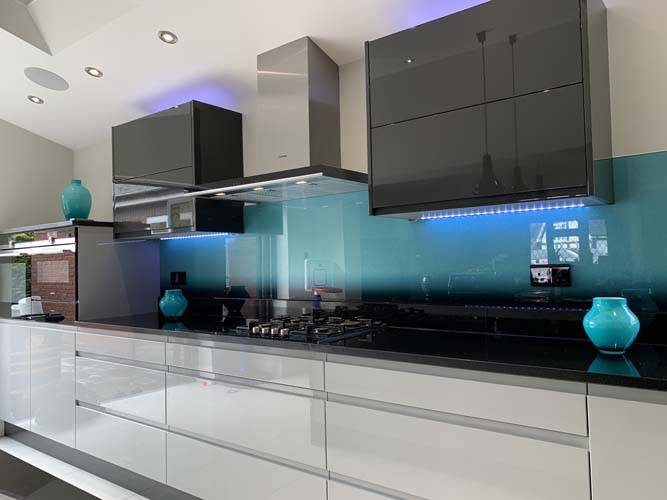Kitchen renovations are a significant investment for homeowners in Australia, promising both aesthetic and functional enhancements. Among the various materials used, glass stands out for its sleek, modern appeal and versatile applications, from splashbacks to cabinet doors. However, using glass in kitchen renovations isn’t just about design choices; it involves strict adherence to specific regulations to ensure safety and compliance. This article delves into the regulations governing the use of glass in kitchen renovations in Australia, offering a comprehensive guide for homeowners and renovators.
Understanding the Building Code of Australia (BCA)
The Building Code of Australia (BCA) is the primary regulatory framework governing building and renovation practices, including the use of glass in kitchens. The BCA sets out performance-based requirements to ensure buildings are safe, healthy, and sustainable. Compliance with these regulations is mandatory for all building work in Australia.
Safety Glass Requirements
One of the critical aspects of the BCA relevant to kitchen renovations is the use of safety glass. Safety glass includes toughened glass, laminated glass, and toughened laminated glass. These types are designed to reduce the risk of injury in case of breakage. In kitchens, where the risk of impact and heat exposure is high, the BCA stipulates the use of safety glass in several applications:
- Splashbacks: Glass splashbacks are popular for their easy-to-clean surfaces and modern look. According to the BCA, any glass used in splashbacks must be toughened safety glass if located within 150mm of a gas cooktop or 600mm of an electric cooktop. This ensures the glass can withstand high temperatures and potential impact.
- Cabinet Doors and Panels: Glass used in cabinet doors and panels must also be safety glass. This is to prevent injuries from broken glass, especially in a high-traffic area like the kitchen.
- Windows and Doors: Any glass used in windows and doors within 800mm of the floor or walking surface must be safety glass. This regulation aims to minimize the risk of injury from accidental collisions.
Australian Standards for Glass
In addition to the BCA, the use of glass in kitchen renovations sydney must comply with the Australian Standards (AS). The most relevant standards include:
- AS 1288-2006: This standard specifies the requirements for the selection and installation of glass in buildings. It covers aspects such as glazing thickness, type of glass, and installation methods to ensure safety and durability.
- AS/NZS 2208:1996: This standard deals with the safety glazing materials in buildings, detailing the testing and performance requirements for safety glass.
Compliance with these standards is not just about following regulations; it ensures that the glass used in kitchens is capable of withstanding the unique demands of the environment, such as exposure to heat, moisture, and potential impact.
Energy Efficiency Considerations
The National Construction Code (NCC), which includes the BCA, also emphasizes energy efficiency in building and renovation projects. For kitchen renovations, this means selecting glass products that contribute to the overall thermal performance of the home.
- Double Glazing: Double glazed windows and doors are becoming increasingly popular in Australian kitchens. They offer improved thermal insulation, helping to maintain a comfortable indoor temperature and reduce energy bills. While not mandatory, using double glazing can contribute to meeting the energy efficiency requirements of the NCC.
- Low-E Glass: Low-emissivity (Low-E) glass is another option that enhances energy efficiency. It has a special coating that reflects heat while allowing light to pass through, reducing the need for artificial lighting and heating.
Compliance and Certification
Ensuring compliance with the relevant regulations and standards involves several steps:
- Building Permits: Depending on the scope of the kitchen renovation, a building permit may be required. This is typically the case for substantial alterations that involve structural changes or modifications to plumbing and electrical systems. The permit process involves submitting detailed plans and specifications that demonstrate compliance with the BCA and relevant Australian Standards.
- Certification: Once the renovation is complete, certification by a registered building surveyor or inspector may be necessary. This process ensures that the work has been carried out in accordance with the approved plans and complies with all relevant regulations.
Choosing the Right Professionals
Given the complexity of regulations and the importance of compliance, it is crucial to engage qualified professionals for kitchen renovations involving glass. This includes:
- Licensed Builders: Hiring a licensed builder ensures that the renovation is carried out by someone who is knowledgeable about the BCA and Australian Standards. Licensed builders are also typically required to carry insurance, providing an additional layer of protection for homeowners.
- Certified Glaziers: When it comes to installing glass, using a certified glazier guarantees that the work meets the required safety and performance standards. Certified glaziers are trained in the proper handling and installation of safety glass, reducing the risk of errors and ensuring long-term durability.
Conclusion
Renovating a kitchen in Australia involves more than just choosing the right design and materials. When it comes to using glass, homeowners must navigate a complex landscape of regulations and standards designed to ensure safety, compliance, and energy efficiency. Adhering to the Building Code of Australia and relevant Australian Standards, obtaining the necessary permits and certifications, and engaging qualified professionals are all critical steps in achieving a successful and compliant kitchen renovation. By understanding and following these regulations, homeowners can enjoy the aesthetic and functional benefits of glass in their kitchens while ensuring the safety and durability of their renovation.
